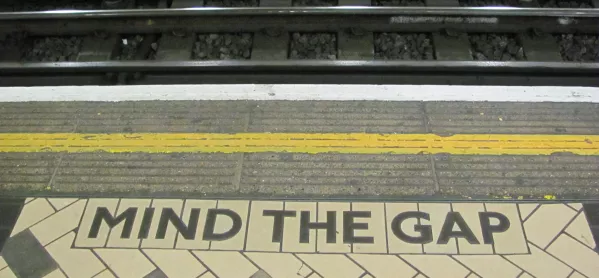Spirit Level author: Academies and free schools are no panacea

Key government policies aimed at helping poorer pupils catch up with their wealthier classmates will not solve the problem, the author of bestselling book The Spirit Level has said in a report out today.
Kate Pickett, professor of epidemiology at the University of York and co-author of The Spirit Level, which lays bare the problems associated with an unequal society, says there is little evidence to support the government’s claim that academies and free schools will drive up standards.
And she says that although the pupil premium could make a difference, the evidence shows it is not sufficient to close the attainment gap alone.
Professor Pickett’s findings were published today in a joint report titled Mind the Gap: Tackling Social and Educational Inequality, written with Dr Laura Vanderbloeman of Imperial College London and commissioned by the Cambridge Primary Review Trust.
Speaking to TES, the academic said politicians could not afford to admit that their major policies were not having the desired effects. “The trouble is we hear from the government that these are flagship policies for them. The pupil premium was a flagship policy for the coalition government and the Conservatives now in power are very much the proponents of free school changes. They want to be entirely positive about them,” she said.
“Politically I think it’s quite difficult to say that ‘we don’t yet know if they’re working’, or ‘some are doing OK and some are not doing so OK’. Politicians don’t really do nuance, they just do triumphalism, so triumphalism is what they’re doing and that doesn’t really fit with the evidence, which is not to say that they are not good things in the end.”
“I don’t think you can really say at this point that academies are wonderful, or academies are terrible, some are doing well and some are doing badly...certainly it’s not a panacea.”
Earlier this month David Cameron pledged to open 500 new free schools in the next five years, saying that they were a “crucial part” of giving every family access to a “great local school”.
The Education Select Committee has also previously warned that government claims about the success of free schools and academies are not backed up the evidence.
But Professor Pickett points out that whatever changes are made to the education system she does not believe the answer to closing the attainment gap ultimately lies in schools.
“The overarching message from this review is there is only a limited amount of change you can make by putting extra resources into schools or expecting teachers to do things, because educational issues are actually structural, societal issues. They are to do with poverty, inequality and deprivation, pressures on family time and those sort of things that can’t be simply fixed by giving more money to schools,” she said.
The authors of the report conclude that as well as the pupil premium, school-based interventions can help - and that evidence from organisations such as the Educational Endowment Foundation is producing useful teaching strategies to help close the attainment gap.
But in the paper they point out that the most important influence on educational attainment is family background. And that it is not just poverty but the scale of inequality in a country that has an impact on how children do at school. This means that, in highly unequal societies, even children with the highest position in society do less well than their counterparts in more equal societies.
The paper draws on research published over five decades to show how children’s status in society affects their future. They cite studies linking highly unequal societies to parents lacking in time for family life and being affected by stress; children being more aware of their status leading to anxiety and behaviour issues; and teachers also being affected, albeit subconsciously, with evidence showing that they rate children from higher status groups more highly in assessments.
The Department for Education said that a million more children were now being taught in schools rated by Ofsted as either good or outstanding.
A spokesperson added: “As part of our wide-ranging educational reforms - including a rigorous new curriculum and world-class exams, which are tackling the soft bigotry of low expectations - the pupil premium is helping schools provide real support for disadvantaged pupils and we are now seeing the attainment gap closing at both primary and secondary level.”
Keep reading for just £1 per month
You've reached your limit of free articles this month. Subscribe for £1 per month for three months and get:
- Unlimited access to all Tes magazine content
- Exclusive subscriber-only stories
- Award-winning email newsletters



